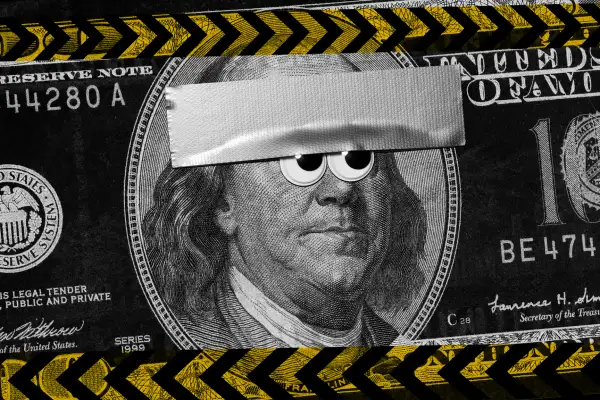Will There Be a Recession in 2025? 60% of Corporate Execs Think So

Worried about the economy? You're not alone.
A majority — specifically, 60% — of corporate chief financial officers expect a recession to hit the U.S. in the second half of this year, according to CNBC’s latest quarterly CFO Council Survey. However, 15% say a recession will occur in 2026.
This sentiment seems to reflect a growing concern among CFOs about an impending economic downturn fueled by a confluence of factors. The report, published last week, found that 75% of surveyed CFOs say they feel “somewhat pessimistic” about the overall state of the economy, likely due to uncertainty from U.S. trade policy, persistent inflation and fluctuating consumer demand.
In particular, top executives are concerned by the trade war outlook and the inconsistent messaging from the White House on tariffs — which 90% of CFOs polled say will lead to a resurgence in inflation.
Tariffs, which are taxes levied on imported goods, were a major talking point for President Donald Trump during his campaign last fall; he saw them as a way to boost American manufacturing jobs. Earlier this month, the Trump administration hinted at taking a softer stance than initially indicated. Then, last week, Trump slapped a 25% tariff on all foreign-made cars and parts starting Thursday.
Analysts and automakers have warned this move will likely drive up car costs by thousands of dollars. (Over the weekend, Trump told NBC News that he "couldn't care less" if foreign car prices spike due to his tariff announcement.)
Though some CFOs told CNBC they see the latest moves by the Trump administration as following through on what its campaign promised, others used words like "chaotic" and "disruptive" to describe his approach.
Looking forward, even though the consensus among CFOs is that a recession is coming in 2025, 90% say it will be moderate or mild.
Recessions themselves can be tricky to define. Last May, for instance, Money reported that over half of Americans thought the U.S. was in a recession when in fact it wasn’t. (The most recent recession took off in tandem with the COVID-19 pandemic and lasted from February 2020 to April 2020.)
Speaking broadly, a recession is a prolonged period of negative economic growth. Some experts say recessions happen when the economy contracts, or gross domestic product declines, for two consecutive quarters. Others use different criteria.
In any case, the National Bureau of Economic Research is formally tasked with declaring when U.S. recessions start and end — and it has not yet sounded the alarm for 2025.
More from Money:
Will We Have a Recession in 2025? 6 Experts Weigh in
Worried About a Recession? Make These 8 Money Moves Now
Higher Prices Ahead? CEOs Reveal Plans to Handle Trump’s Tariffs
